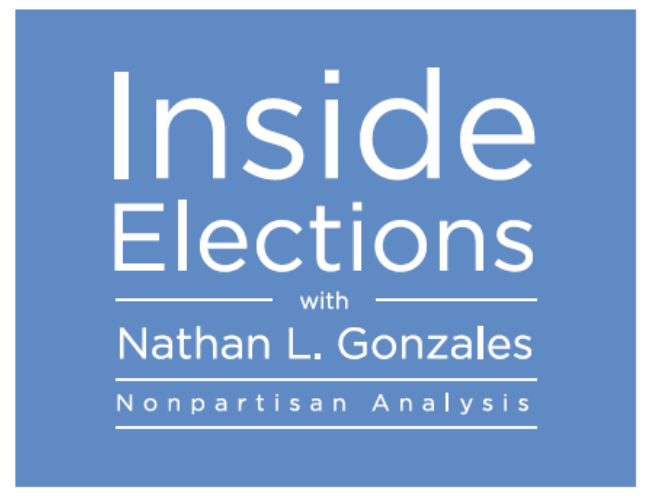NAA Inside Elections
With Nathan L. Gonzales, Nonpartisan Analysis

MAY 19, 2025 - VOLUME 9, NO. 10
Pennsylvania 7: Long Road
Ahead in the Lehigh Valley
By Jacob Rubashkin
With Republicans clinging to a narrow House majority, Pennsylvania’s 7th District is on the frontline of the GOP’s battle to maintain control. A perpetual bellwether held by a freshman Republican, the 7th is close to a must-win for Democrats next year. But the diverse district presents hurdles that mirror the larger challenges the Democratic Party faces across the country: how to stop the bleeding among Hispanic voters, solidify gains in wealthy and growing suburbs, and finally regain a foothold among white blue collar workers.
Ryan Mackenzie, in his third run for Congress, overcame a five-to-one fundraising disadvantage to oust three-term Democrat Susan Wild in one of 2024’s closest races. His win was one of three closely watched House races in Pennsylvania that broke against Democrats, along with the commonwealth’s all-important Senate and presidential contests. Now Mackenzie finds himself at the center of attention, with no upcoming presidential or Senate races in the Keystone State. And
Democrats are already talking about his evenly divided seat as a top five pickup opportunity. (READ FULL ARTICLE HERE)
APRIL 22, 2025 - VOLUME 9, NO. 8
2026 Senate Overview:
Open-minded about Outcomes
By Nathan L. Gonzales and Jacob Rubashkin
Nineteen months before Election Day, it’s healthy to be open-minded about what could happen in next year’s midterm elections. Under normal political conditions, Republicans would hold and potentially expand their Senate majority in 2026. Partisanship is powerful and Republicans are defending just one seat (Maine) in a state where Kamala Harris finished ahead of Donald Trump in the 2024 presidential election. Meanwhile Democrats are defending two states (Georgia and Michigan) where Trump finished ahead of Harris, and Democrats need to gain four seats overall for a majority.
But it’s not clear what the political climate will be like next year. President Trump’s aggressive initial few months and effort to maximize and extend the power of the executive branch have created a high level of domestic and international uncertainty as well as economic instability. In the spirit of openmindedness, it’s possible that voters punish Republican candidates over Trump’s overreach, making seats in typically GOP states more competitive than usual, and putting a Democratic majority within reach. (READ FULL ARTICLE HERE).
MARCH 10, 2025 - VOLUME 9, NO. 5
2026 House Overview:
The Fight of the Cycle
By Nathan L. Gonzales and Jacob Rubashkin
The GOP majority in the House is at risk and will likely be the most consequential battle in 2026, while Senate Republicans might be insulated from a midterm backlash. Typically, midterm elections go poorly for the president’s party, particularly in the House. Winning parties prematurely declare a mandate, overreach, and voters respond by sending more members of the “out” party to Washington as a check and balance. With President Donald Trump’s aggressive first few weeks in office, history may repeat itself. Support for Trump’s policies on government efficiency, tariffs, and foreign policy will wane if his actions start to hurt people’s everyday lives. Economic decline or instability and questions about national security, will likely excite Democratic voters, turn off independents, and temper GOP enthusiasm. Republicans already faced the challenge of turning out Trump voters when Trump isn’t on the ballot.
Democrats need a net gain of three seats for a House majority, but (READ FULL ARTICLE HERE)
